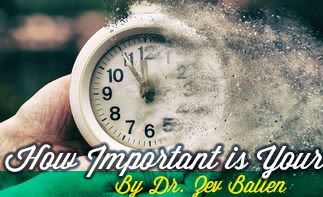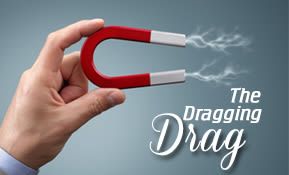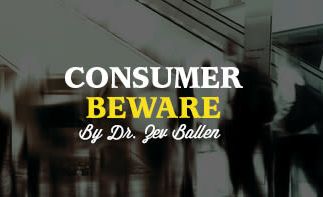
Say Sorry
Our society is so mixed up that we often beat ourselves over minor mistakes. We need to say sorry and be accountable for our actions - but which ones?

The second foundation of emotional health is sensible accountability. In today’s topsy-turvy world, far too many of us walk around either feeling bad about things that we really shouldn’t, or not feeling ashamed about things that we really should.
So, when is it ‘healthy’ to feel ashamed and accountable? And how can you know if the accountability and shame you’re feeling is good for your spirituality and helpful towards your personal growth, or toxic and spiritually damaging?
Healthy Accountability
Before we jump into the whole discussion about what makes accountability healthy, we need to define what accountability is: Taking appropriate responsibility for something you did wrong.
In its proper context, accountability (and the feelings of guilt and shame that often prompt it) is a very useful trait to have and a key component of our spiritual makeup, or soul.
God gave you (and me, and everyone else out there) the ability to feel accountable and ashamed of our behavior for the following reasons:
- If you never feel ashamed about the things you’ve done that are objectively wrong, you will never try to make amends for them.
- Shame can motivate you to change and improve.
- When you feel accountable for how you act, and how you treat others, you will work to relate to people with more kindness and compassion.
So, how do you know when your feelings are correct and positive, or not? Here is my simple rule of thumb:
When your feelings of accountability motivate you to clean up the mess you made, or to sincerely apologize for something you did wrong, or to resolve to get a grip on your bad character traits, then they’re coming from a healthy place, and they’re doing you a world of good, spiritually, emotionally and physically. However, if your feelings of accountability are either completely absent or are crippling you with feelings of toxic shame and guilt, then that’s seriously unhealthy.
Unhealthy Accountability
Now that we’ve defined sensible accountability, it’s time to look at how accountability can get unhealthy and unbalanced. Normally, that can happen in one of two main ways. Either:
You don’t give a hoot about who your actions are hurting, and you don’t feel bad about anything you do, even the worst things in the world.
OR
You take responsibility for everything that’s going wrong in the whole world, and you walk around feeling permanently guilty and ‘to blame.’
I’m exaggerating (a little…) to make the point, but you get the idea. Now, let’s look at both areas in more detail to try to understand a little more about what’s actually causing the problem and what you can do to start resolving it.
Nobody Does This Right All the Time
Before you continue reading, you should know that even the most sincere, saintly, altruistic people will occasionally lose their temper; or talk on their phone while they’re driving; or take the last chocolate in the box, even though they know their husband would have really liked it.
Developing sensible accountability does NOT depend on you always acting appropriately and properly – if it did, it would be a spiritual Mission Impossible, because none of us are angels, and we all make mistakes. Rather, sensible accountability is much more about ensuring that you react in a healthy, sensible way AFTER your inevitable error of judgment, mistake, or bad behavior.
Therefore, the first question to ask yourself is: Do you own up when you make a mistake or act inappropriately, or do you try to shove it under the carpet and pretend it never happened?
When is it Good to Feel Bad?
One of the main reasons why you might find it difficult to take responsibility for something you’re genuinely doing wrong could be if you were routinely blamed, criticized or shamed about even minor things when you were growing up. If you were off mugging grannies or hijacking cars – well, OK then, that might have been an appropriate response from your caregivers.
But if you were just making honest mistakes, or errors of judgment, or acting in an immature way (which is 100% OK, considering that you were a CHILD) then you might have turned off your ability to feel responsible as a defense mechanism.
(It’s timely to note here that your caregivers were probably raised with the same sort of parenting paradigm they handed on to you. They were doing the best they could, given that no one was talking about healthy compassion and sensible accountability 50 years ago.)
The good news is that just as your sense of accountability got switched off or numbed, it can get reactivated again. The first step is to identify when it really is ‘good’ to feel ‘bad,’ and what you genuinely do need to take responsibility for.
Back to Compassion
The first rule of thumb is to have compassion on yourself. Search for, and find, the inner part of you that wants to do good and be good – because every single one of us has it inside. Recognize that this is your soul – the real you. Then, forgive yourself for your imperfections, because they don’t really say anything about you at all! Admit them, ask God for help to do better in the future, and move on. Re-read my articles about compassion and make strengthening your compassion for yourself one of your main priorities.
Once you learn how to have more compassion on yourself, you will feel the internal pressure start to release. As that happens, you will then have the strength to see the big mistakes you are making and own up to them. It’s like a rubber band – if it is already overstretched, it is dangerous to stretch it further. Loosen up on all those umpteen small things, and you’ll have the room to handle the pressure of the big things that you really do need to work on.
In the worst-case scenario, a severe lack of self-compassion can leave you feeling worthless, empty and ‘fatally-flawed,’ as though you have nothing left to give and no reason to be alive. But no one can be perfect all the time! You’re a human being, not an angel, and human beings – even the best ones – make a lot of mistakes.












Tell us what you think!
Thank you for your comment!
It will be published after approval by the Editor.